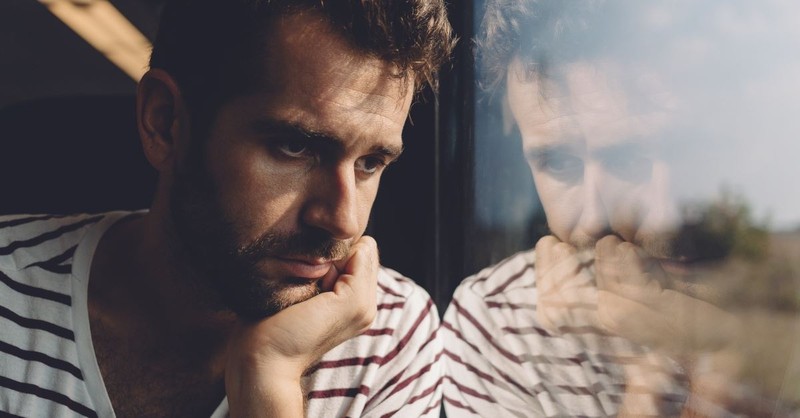How to Overcome the Inner Scars of Abuse
- T.I. Lowe Author
- Updated Jun 06, 2019

One of the most powerful testimonies I’ve ever heard was shared by a young man on how he overcame being verbally and physically abused.
He fit the make and model of what society labels as different and he didn’t go along with the crowd. A group of guys thought it was their right to bully him, taunting and spreading rumors.
The verbal abuse eventually escalated to physical. Isolating him, they used their fists and whatever else they had as weapons, not stopping until he was beaten to a pulp and losing consciousness.
It’s mind-boggling how he overcame the abuse to stand tall and share his testimony with anyone willing to listen. It makes my stomach churn and my heart ache to think of what he endured, also knowing that not everyone survives such evil.
All it takes is typing ‘abuse’ in an Internet search engine to find the evidence. Abuse is cloaked in many forms, and each type inflicts wounds—physically, internally, or both. Both can successfully heal if given the proper treatment, but both will also leave a permanent scar— some faint and not easily noticed, and others disfiguring and unforgettable.
Wounds vary in depth, but they’re all important. It’s up to us what we allow the scars to stand for.
Each one of us can probably find a scar or two after a close inspection of our bodies. You may find several faded scars that you don’t even recall getting. If it is a larger scar, I’m pretty sure you can recall the wound that caused it.
I have one physically significant scar. It’s on the bottom of my foot—a consequence of running around barefoot, as most of us country young’uns like to do. I was elementary-school age, and I recall the exact moment in my life.
My daddy was burning a small pile of debris while my two siblings and I scoured the yard for more things to throw in to keep the flames going. I stepped a little too close while tossing something in and stepped on a melted toy car. The molten plastic stuck to the bottom of my foot, severely burning the skin and giving me my very first taste of excruciating pain.
The scar is on the bottom of my foot and out of sight, but each time I catch a glimpse of it, the memory isn’t of the fire or the painful healing process. No, I recall that it occurred during a time my parents were separated.
My momma not only left my daddy, but also us three small children behind with him. Screaming in pain, I remember my daddy scooping me up to figure out what to do while I was wishing my momma was there to comfort me.
When she did show up, well after the fact, not much comfort was given. It was more of my feeling torn between my parents as they argued over whose fault it was that I had gotten hurt in the first place.
My scar may not have been the result of abuse, but I can relate to the aspect of emotional scarring. Sure, the burn scar is only skin-deep, but the inner wound of my family breaking apart marred my soul.
Ignoring a wound won’t make it go away.
Let’s imagine for a minute that you’re helping a friend make a salad. While you mix the dressing, your friend is chopping the vegetables, but the knife slips and she severs her index finger. You scream, but your friend simply wraps a few paper towels around the wound and goes back to chopping—like the finger is still intact and she’s not bleeding out all over the place.
You beg her to go to the ER, but she keeps declaring that she’s fine and the finger will miraculously heal itself. We both know this is not going to happen. If she keeps ignoring it instead of getting help, the consequence will be fatal.
I wonder how many people are walking around each day ignoring gaping wounds inflicted by abuse, just pretending it didn’t happen and that their souls aren’t bleeding out.
The answer for the friend needing a trip to the ER is just as relevant to the person who has been abused.
It’s okay to seek help, whether it’s stitches or counseling. I encourage you to stop ignoring the care you need and reach out for help. Even if you begin with talking to a friend or a pastor, it’s a step toward healing.
It’s okay to lean on one another. Please don’t ever think you have to do life alone. It’s not what God intended for us.
“If one person falls, the other can reach out and help. But someone who falls alone is in real trouble.” (Ecclesiastes 4:10)
What if wounds aren’t allowed to heal properly?
Just like the friend who tried to ignore her finger wound, let’s say there is another friend with a less severe wound who is also being neglectful. It didn’t require stitches, yet it’s pretty deep and in need of care. This friend doesn’t keep the wound clean, never dresses it, and is always picking at the scab. She knows that’s only making it worse, but she cannot help herself.
Maybe she thinks she deserves the wound. Maybe she is so wrapped up in what caused it that she’s only causing a deep-seated hate over the wound to fester.
In not allowing it to heal, she causes the wound to become toxic, triggering more unhealthy side effects until it infects everything.
An inner wound is much the same, and not facing what has happened won’t make it go away.
I’ve watched a loved one who endured abuse let it dictate her entire life. It happened 30-plus years ago, yet she refuses to come to terms with it. What she suffered was horrific and unfair, but she’s not gotten the right help to live a healthy life. The abuse has made the rest of her life toxic and led to bad choices. I beg her to get help and to seek God’s peace on it, but she keeps picking at the scab and making the wound worse.
Please don’t let a wound become toxic to the point it robs you of the joy God planned for your life.
“He will redeem them from oppression and violence, for their lives are precious to him.” (Psalm 72:14)
Even though a scar is permanent, it doesn’t have to define us.
The sad truth is that each life experiences difficult times, some more severe than others. But we all have a choice to make. We can take the wounds inflicted on us and learn from them or allow them the power to become debilitating.
We can take the inner scar and give it a better purpose, using it as a badge of courage instead of a token of shame.
Before I came to know Jesus, I carried around a mixed bag of tokens that I thought defined me. Thankfully, I understand now that those were false definitions. As a child of God, I am an overcomer. And you are, too.
The young man I shared with you at the beginning is the definition of an overcomer. His name is Jesus. He still carries the scars of abuse he endured on the cross, but never has he allowed them to define him as a victim.
What do you see when you take in pictures of the scars on his outstretched hands? I see redemption and sacrifice—strength and glory.
Jesus paid the ultimate price so that the perspective I have of my scars can be the same. There will be others who need our testimonies to find their own after enduring abuse.
I don’t believe God makes bad things happen to us, but I do believe he can allow good to come from them if we are willing.
“God is our merciful Father and the source of all comfort. He comforts us in all our troubles so that we can comfort others. When they are troubled, we will be able to give them the same comfort God has given us.” (2 Corinthians 1:3-4)
The main character from my novel Lulu’s Café endured abuse. The book is her journey of overcoming the scars that abuse inflicted and claiming a healthier life for herself. I’d like to conclude with this line from the book:
“Leah was so thankful for the healing God had graciously granted her—taking her ugly past and blessing her with an exceptional life beyond those wounds.”
“Heal me, Lord, and I will be healed; save me and I will be saved, for you are the one I praise.” (Jeremiah 17:14)

Photo Credit: GettyImages-Marjan_Apostolovic



















